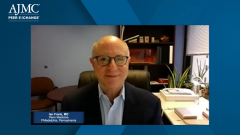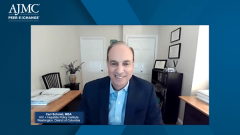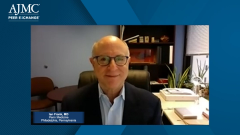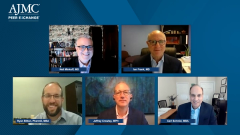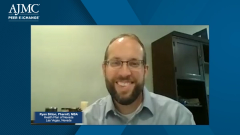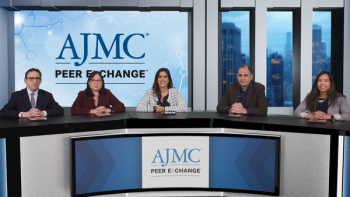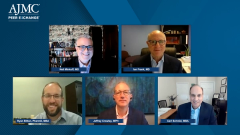
Future of PrEP
Experts in HIV provide closing thoughts on the future of PrEP, including improvement of uptake and addressing access disparities.
Episodes in this series

Neil Minkoff, MD: I want to see if there are any final thoughts that people want to share with the group or with the viewing audience about PrEP [pre-exposure prophylaxis] or the future of PrEP, and things that we should have as a take-home message?
Jeffrey Crowley, MPH: Could I mention one thing?
Neil Minkoff, MD: Of course.
Jeffrey Crowley, MPH: When you started out, you talked about roughly 1 in 5 people with an indication for PrEP are on it. I would like to dig a little deeper so people can understand the large disparities we have. Based on CDC [Centers for Disease Control and Prevention] data in 2018, about 18% of people with an indication for PrEP were on it. However, when we look on the basis of gender, it’s a very big difference. For example, almost 21% of men with an indication are on PrEP, but only 6.5% of women are. That is a huge disparity there, but then in terms of race/ethnicity it gets even worse. Earlier in the conversation, Dr. Frank said something, and this is what I’ve heard from epidemiologists, that you want to see uptake of around 40% to 50% to start seeing very significant public health impacts. We have an indication that about 44.3% of white people with an indication for PrEP are on it, but then when you look at Latinos, it is only about 10%, 10.5%, The center of our epidemic is often Black Americans. They’re the group with the lowest uptake of only 6.1%. Thus, by looking at total uptake as a whole, we’ve missed this broader story, which should guide policy action to focus on very specific populations.
Carl Schmid, MBA: What I would like to conclude with is that we have to remember HIV is a public health issue. We just went through COVID-19 as a public health infectious disease. Well, HIV is still out there as well, and it’s going to take all of us—the payers, providers, the patient community, but also we need state and federal government leadership. Look at the role the CDC played in the COVID-19 crisis. They have a similar role, and other parts of the federal government as well. I think to accomplish the goals of ending HIV through treatment and prevention, we need the federal government’s leadership as well. They could be helpful in decreasing the stigma associated with HIV and making sure we have the programs in place so people can access the drugs, particularly PrEP, that they need.
Ian Frank, MD: I think the points Jeff and Carl just made are really important, and I support what they both said 100%. I would like to add that I think one of the lessons from COVID-19 is, when we work together, we work more successfully. A lot of times in medicine, we have an individual treatment goal, but a lot of the efforts around those goals are done in a siloed fashion. Here, I think we have another public health objective, and to implement it most successfully, we need to work together. This is far more complicated from a managed health perspective, and I’m not sure there’s any 1 group that’s represented by any of the individual panelists that can tackle this effectively on their own. I think we need to be strategizing in how to work together to do this. I really appreciated the opportunity to participate in this discussion because it has given me a somewhat broader view. I know you’re all out there, but I don’t think of you as often as I should. Thus, I’m going to try to keep that in mind and try to figure out how I could work with you all in the future.
Neil Minkoff, MD: Ryan, Dr. Bitton, last but not least?
Ryan Bitton, PharmD, MBA: Yes. I’m grateful for the conversation, I think it has been very eye opening. To echo Dr Frank, there’s not 1 of us who is going to fix all of these problems. It’s all of us together, and it has been eye opening to me, talking about the population and the hurdles, and where we need to be and where we’re not. I think that has been helpful for me because it’s easy to think in our silo and stay in our lane and not think about the rest of the population who are trying to also solve these considerations. Yes, a great conversation. Thank you.
Neil Minkoff, MD: Once again, I’d like to thank every one of you for participating. Again, this was great dialogue here, and I think we got a lot out of it, and I believe the people who are going to be listening will get a great deal out of it as well. I want to thank all of you, and to our viewing audience I want to say that I hope you found our American Journal of Managed Care® panel on PrEP for HIV to be useful and informative, and I look forward to seeing your comments.
Transcript edited for clarity.
Newsletter
Stay ahead of policy, cost, and value—subscribe to AJMC for expert insights at the intersection of clinical care and health economics.
